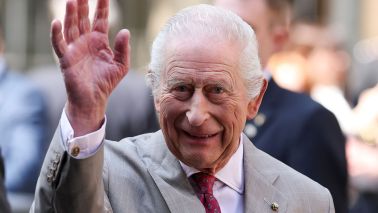You may have seen the recent Georgian marketing campaign on BBC World and CNN, which looks like a splicing of The Apprentice and the title sequence from The Professionals. Among the familiar names dropped in the ad, such as HSBC, is an enigmatic one, Rakia. And this, it turns out, is not Bosnian firewater, but the acronym of the Ras Al Khaimah Investment Authority, which is presumably a sovereign wealth fund from that microscopic Arab emirate — though its website presents it as an inward investment promotion body, something quite different.
Nevertheless, Rakia has become a major player in Georgia, buying strategic assets like the powerful media group Imedi and the free zone of the port of Poti. But that’s not all: in February, Gulf Daily News reported that Rakia intends to invest a further $2 billion in Georgia over the next five years. Given that foreign investment here fell a massive 80 per cent in the first six months of the year, Rakia and a couple of other UAE investors (one of which bought a leading bank) now have quite some clout in an impoverished country heavily reliant on aid.
The interesting thing is that Ras Al Khaimah (trans: top of the tent) is a tiny emirate of just 250,000 people that in the past received subventions from its big brother, Abu Dhabi. Aside from a substantial ceramics industry, it’s hard to spot any cash cows in Ras Al Khaimah. One can only assume that in stark contrast to its profligate neighbour Dubai, Ras Al Khaimah is an assiduous saver. I asked Rakia to explain the source of its funds and what other assets it might acquire in Georgia. Initially I contacted the splendidly named Dr Tapas, head of marketing, who passed me on to two colleagues, but illuminating replies were not forthcoming within the time available.







Comments
Join the debate for just £1 a month
Be part of the conversation with other Spectator readers by getting your first three months for £3.
UNLOCK ACCESS Just £1 a monthAlready a subscriber? Log in